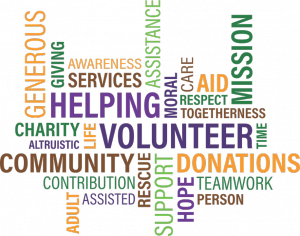5 Reasons to Major in Risk Management & Insurance
Insurance companies are hiring
One of the main reasons people go to college is to become more employable. If gainful employment is your goal, than the insurance industry is definitely a good place for you to start to look for a job post graduation. This is because, the industry is predicted to grow for the next few decades. More insurance is needed by people than ever before. That goes for both the business and personal side of the industry. According to the Small Business Administration, there are more than 28 million small businesses in america that make up for more than 55% of all jobs in the country. All of these businesses need continually need well educated employees to service these businesses.
The workforce in the insurance industry is aging.
According to Insurance Business Magazine, the average age of an insurance agent is now 59 years of old. According to the Insurance Journal, “The average age of an insurance industry professional is 54, and 60 percent of insurance industry professionals are older than 45.” Because of this fact, there will be thousands of retiring professionals who need to be replaced in the next 10 years. This means two good things for graduates looking to get their foot in the door in the insurance industry; there are a lot of potential mentors with a wealth of knowledge and experience in this industry and there will be a lot of room for upward mobility because of the sheer fact that so many people will be retiring in the near future.
Millennials are becoming a target market
Millennials are now a larger portion of the population than baby boomers. Also, they are are now getting to the age where they are buying homes, searching for their own health insurance and even starting their own businesses. Because they represent such a large new market for the industry, insurance companies need people who can relate to this new market on their terms. Millennials shop for insurance in a dramatically different way than their parents did. The insurance industry as a whole has not exactly kept up with technology. Most insurance companies need employees to help them communicate with these new potential customers and they need to be able to reach these customers where those customers are. More and more often that place is online and through a mobile device. The older generation, who is now in control of the insurance industry, is not exactly technologically advanced. The better a millennial can help agencies and carriers reach this new demographic on their terms, the better those people can set themselves up for continued success in the insurance industry.
The chance to develop Transferable Skills
Interpersonal communication, critical thinking and computer knowledge are skills that are essential for success in the insurance industry. These are also skills that can be transferred to many different industries. No matter what industry a recent grad desires to be in, in the future, these three skills are crucial to their future success.
Interacting with a 40-year-old business owner in 2016 is much different than in 1996. In 1996, cold-calling and in-person meetings were the typical ways to conduct business. Now a majority of all business is done via email. Some business is even conducted thru social media. If you have a knack for these platforms you can position yourself as an asset to your company. Because of the age of so many within the industry these new skills will only become more valuable as technology advances.
People will always have to purchase insurance in some form or fashion
No matter what the future holds for business in the United States, insurance will continue to be a part of the economy. More people now need insurance than ever before. Whether it is health, car, home, auto or small business coverage; there will always be numerous markets for insurance throughout the United States. That means jobs will always be there for those that are willing to train hard and keep their nose to the grind.




